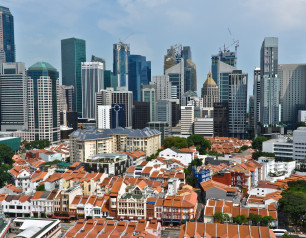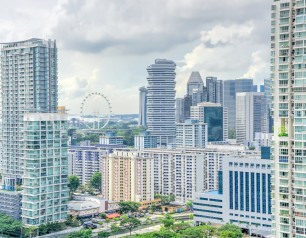What Drives Singapore's Rental Prices to Sky-High in the Post-Pandemic Era?
Singapore, known for its modern skyline and vibrant economy, has long been an attractive destination for both businesses and residents. However, the post-pandemic era has witnessed an unprecedented surge in rental prices, leaving many wondering what factors are contributing to this skyrocketing trend. In this article, we delve into the various drivers that have pushed Singapore's rental prices to new heights, and explore how the aftermath of the pandemic has played a significant role in shaping the real estate landscape.
- Supply and Demand Imbalance
One of the primary drivers behind the surge in Singapore's rental prices is the imbalance between supply and demand in the housing market. The construction of new properties has been delayed due to lockdowns and restrictions, exacerbating the supply shortage. On the other hand, the gradual recovery of businesses and easing of restrictions have led to an increased demand for rental properties. This disparity between supply and demand has consequently led to a considerable spike in rental costs.
- Return of Foreign Talent
Singapore's economy heavily relies on foreign talent to fuel its growth and innovation. Before the pandemic, the city-state attracted a significant influx of skilled professionals from various industries. The pandemic-induced travel restrictions may have temporarily reduced the number of foreign workers, causing a dip in rental demand. However, as global travel restrictions eased, Singapore likely experienced a resurgence in foreign talent seeking opportunities in the country. This return of expatriates and skilled workers would have undoubtedly driven up the demand for rental properties, contributing to the surge in prices.
- Shift in Work Patterns
The pandemic accelerated the adoption of remote work and flexible work arrangements, enabling employees to work from home or remotely. This shift in work patterns has allowed individuals to reconsider their housing preferences, as they are no longer bound to living close to their workplace. As a result, some renters may have chosen to explore more affordable options outside the central business districts, leading to increased competition in suburban areas and driving up rental prices.
- Government Policies and Intervention
Singapore's government has implemented various policies to curb property speculation and stabilize the real estate market. These policies, such as the Additional Buyer's Stamp Duty (ABSD) and Total Debt Servicing Ratio (TDSR), were introduced to manage the demand for properties and prevent the formation of property bubbles. However, these measures have also inadvertently impacted the rental market. With restrictions on property purchases, some potential buyers turned to the rental market, further driving up demand and contributing to higher rental prices.
- Economic Recovery and Inflation
As the global economy recovers from the pandemic's impact, inflation rates have risen across various sectors. This increase in overall inflation can also affect the real estate market, leading to higher operating costs for landlords. In turn, these higher costs may be passed on to renters, leading to higher rental prices as landlords attempt to maintain their profit margins.
Conclusion
The surge in Singapore's rental prices in the post-pandemic era can be attributed to a combination of factors. The imbalance between supply and demand, the return of foreign talent, changes in work patterns, government policies, and economic recovery have all played a crucial role in shaping the rental market. As Singapore continues to adapt to the new normal, it will be essential for policymakers, businesses, and stakeholders to collaborate and find sustainable solutions to address the challenges posed by the ever-evolving real estate landscape. Only through a holistic approach can Singapore strike a balance between economic growth, housing affordability, and social well-being in the years to come.



